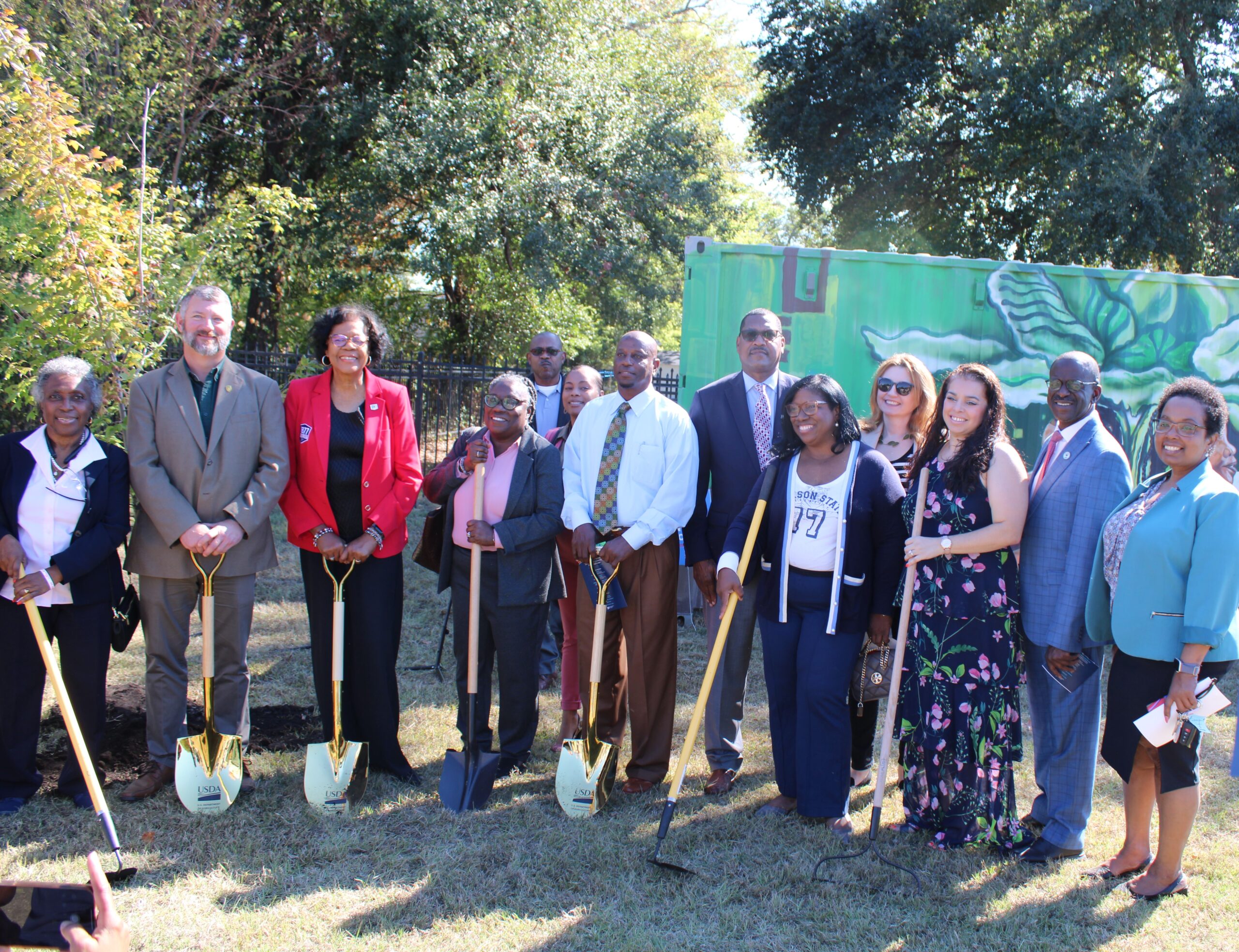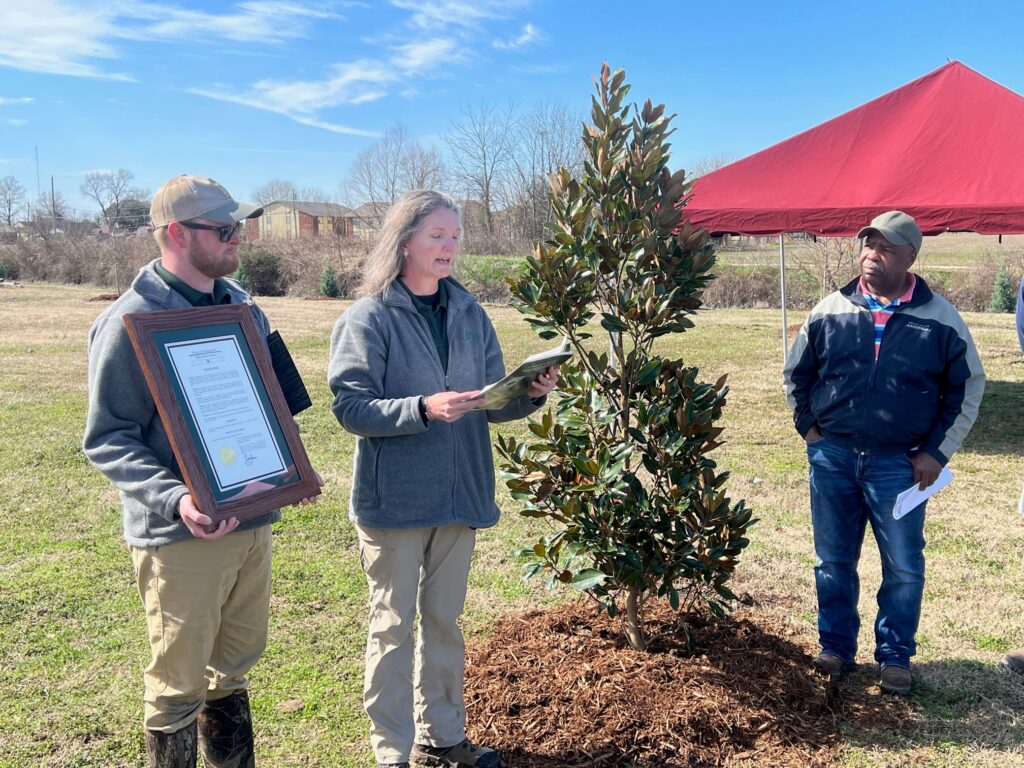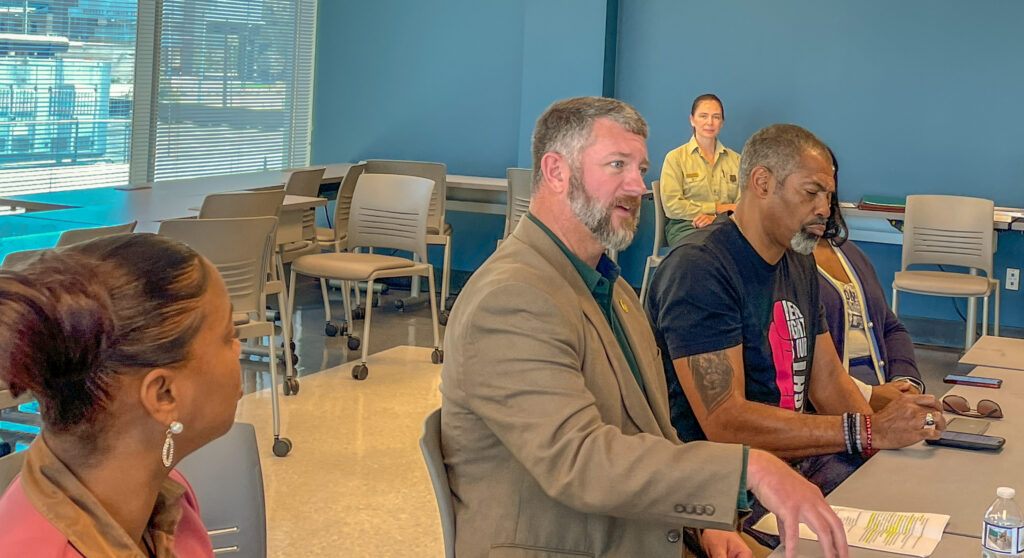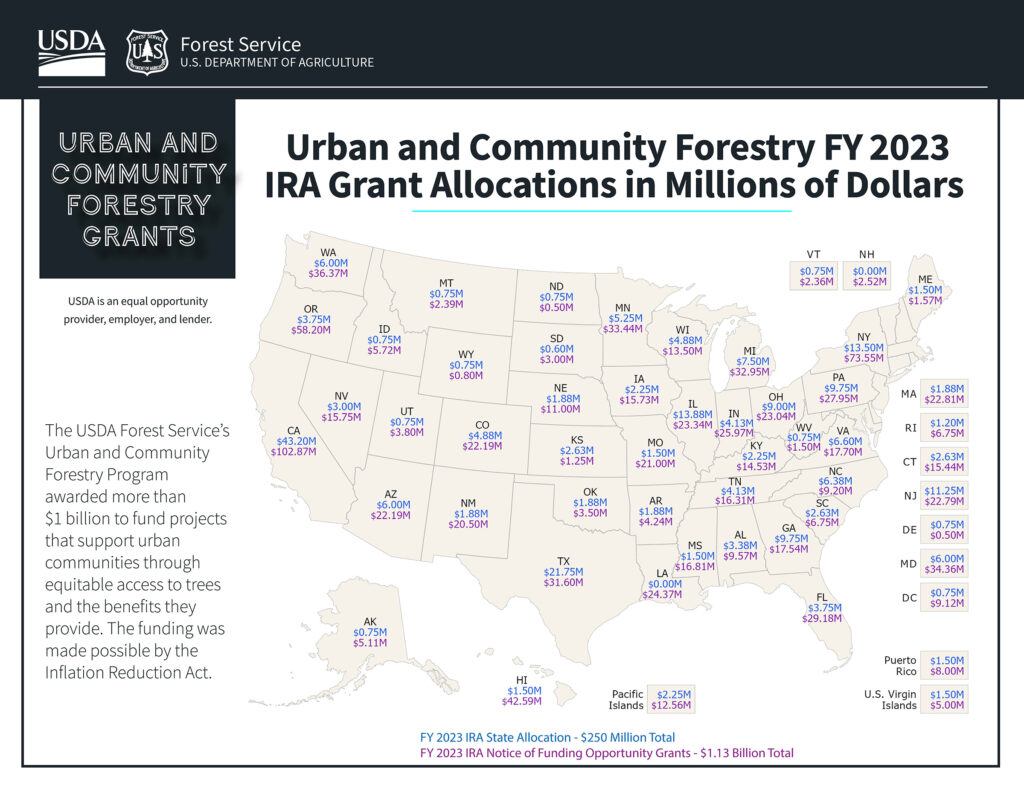Updates & Blog
Mississippi celebrates historic USDA investment in Urban and Community Forestry

The U.S. Department of Agriculture (USDA) Forest Service recently allocated $1.5 million to the Mississippi Forestry Commission’s (MFC) for projects that expand access to trees and their associated environmental, economic, social and human health benefits. MFC plans to utilize the funds through their Urban and Community Forestry (U&CF) Assistance Program to competitively select and serve six disadvantaged communities through a comprehensive 2-to-3-year immersive assistance program. This initiative will provide a team of U&CF professionals to engage with Mississippi communities to build their capacity for managing urban forests actively and sustainably, into the future. Additionally, the state intends to award tree-planting subgrants to disadvantaged communities through a competitive application process, further leveraging the impact of the investment.

The $1.5 million allocation for MFC is part of a larger $16.8 million investment across the state of Mississippi, made possible through USDA’s historic commitment to invest over $1 billion in U&CF projects nationwide through the Inflation Reduction Act. To commemorate the Mississippi investment, the USDA Forest Service recently organized a roundtable discussion for grantees, and a tree-planting ceremony with Jackson State University. Jackson State University’s Acting President, Dr. Elaine Hayes-Anthony, hosted the event, which aimed to bring partners together and raise awareness about the grant funds. USDA Under Secretary, Dr. Homer Wilkes was the featured event speaker. Russell Bozeman, Mississippi State Forester Russell Bozeman was also one of the speakers during the day’s activities.

Bozeman emphasized the importance of healthy community tree canopies, stating, “Communities with thriving tree cover are, on average, 10 degrees cooler than those without.” He also noted that “nature-deprived communities, which have historically suffered from a lack of investment in trees and their management, are particularly vulnerable to the impacts of extreme heat, pests, storms and flooding.” Bozeman further highlighted the challenges faced by Mississippi, such as scorching summers, a recent drought that increased wildfire risk, and an excess of stressed and dying trees. He emphasized the need for resilient urban forest management programs to mitigate these issues effectively.
“Investing in urban community forests is investing in people. Trees and nature improve mental health, increase home values and provide other ecological benefits, such as cooling communities during summer’s heat,” said Regional Forester Ken Arney. “I am thrilled to see such an investment in the Southeast. This builds upon on our long-standing tradition of connecting people with the benefits of nature.”

Across the Southern Region, the U.S. Forest Service has so far allocated $209 million of the total U&CF investment to community-based organizations, tribes, municipal and state governments, non-profit partners, universities and other eligible entities. These investments will facilitate tree planting and maintenance in disadvantaged urban communities, address climate issues, and support job creation and workforce development.
Funding amounts by Southern states are:
- Alabama – $9.5 million
- Arkansas – $4.2 million
- Florida – $29.1 million
- Georgia – $17.5 million
- Kentucky – $14.5 million
- Louisiana – $24.3 million
- Mississippi – $16.8 million
- North Carolina – $9.2 million
- Oklahoma – $3.5 million
- Puerto Rico – $8 million
- South Carolina – $6.7 million
- Tennessee – $16.3 million
- Texas – $31.6 million
- Virginia – $17.7 million
To view a full list of 2023 funded projects in each state, visit the Urban and Community Forestry Grants webpage. For local information or assistance, contact your state Urban and Community Forestry Coordinator.